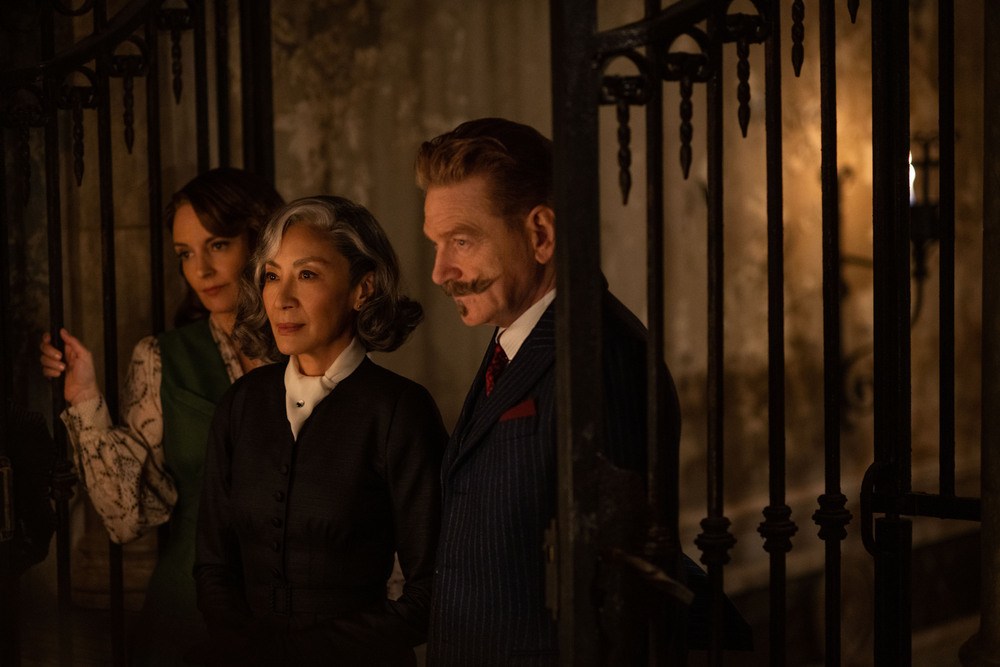A Haunting in Venice

Tina Fey, Michelle Yeoh, and Kenneth Branagh star in A HAUNTING IN VENICE. (Photo: 20th Century Studios)
Besides Shakespeare, of course, Kenneth Branagh’s fantasy dinner party would obviously include fictional detective Hercule Poirot and his creator, Agatha Christie.
His third go-around with the character as both an actor and a filmmaker, A Haunting in Venice is a change-of-pace that’s also a surprising departure from the source material — in this case Christie’s 1969 novel Halloween Party, one of her final Poirot adventures.
Incorporating the titular city as a visually striking backdrop, this murder mystery infused with supernatural frights is an uneven haunted-house saga that can’t decide whether it’s supposed to be scary, funny, or suspenseful. The result is all three, but only in spurts.
In 1947, the semi-retired Poirot is summoned on a stormy Halloween night to a creaky Venetian palazzo by novelist Ariadne (Tina Fey), an old acquaintance. She wants to expose a fraudulent psychic medium (Michelle Yeoh) about to conduct a séance for a singer (Kelly Reilly) distraught over her daughter’s apparent suicide.
The building itself is a former orphanage rumored to house the specters of mistreated children seeking vengeance. When tragedy strikes, everyone present becomes a suspect, including a prickly doctor (Jamie Dornan) his precocious preteen son (Jude Hill), and a pious ex-nun housekeeper (Camille Cottin).
Poirot disavows both God and ghosts, although his skepticism fuels his curiosity. “You’re doing that thing where you pretend to know more than anybody else,” Ariadne wryly observes.
As the investigation deepens, his arrogant convictions mask a crisis of faith that triggers a downward spiral of insecurity and self-doubt, not to mention paranoid hallucinations.
It’s nice to see an introspective portrayal that explores Poirot’s darker and more vulnerable side. Branagh again captures his quick-witted mix of quirks and cunning, and his exchanges with Fey provide some acerbic highlights.
Meanwhile, the film’s clever use of angles and shadows evokes an unspoken tension amid the claustrophobic setting and ominous period atmosphere.
As it juggles characters, the lack of depth in the screenplay by Michael Green — who also adapted Murder on the Orient Express and Death on the Nile for Branagh — maintains a frustrating emotional distance.
Yet the twists are intriguing enough to keep the central mystery compelling as the pieces come together. It’s not the best work for either the author or the director, but at least A Haunting in Venice isn’t content to repeat its predecessors.
Rated PG-13, 103 minutes.